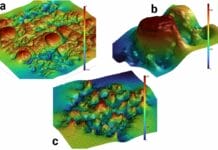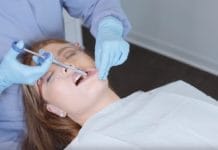A study conducted at the University at Buffalo has uncovered a potential association between the use of heartburn medication and a reduction in the severity of periodontal disease. The study focused on proton pump inhibitors (PPIs), a class of drugs commonly prescribed for conditions like heartburn, acid reflux, and ulcers.1
The researchers hypothesize that PPIs may influence bone metabolism, the gut microbiome, and periodontal microorganisms, potentially contributing to the reduction in periodontal disease severity.1
Evidence suggests that administering proton pump inhibitors (PPIs) to pediatric patients may negatively affect bone development. Additionally, PPIs may lead to decreased bone mineralization in adults and older people, potentially resulting in osteoporosis.1
The exact mechanism by which PPIs impact bone metabolism is not fully understood. One theory suggests that PPIs may reduce intestinal calcium absorption by increasing gastric pH, affecting the solubility of dietary calcium salts. This decreased absorption can lead to increased bone resorption and secondary hyperparathyroidism, causing a negative calcium balance.1
Another theory proposes that PPIs suppress gastric acid, leading to hypergastrinemia, which stimulates parathyroid glands to produce parathyroid hormone (PTH). Elevated PTH levels can stimulate bone resorption, affecting bone strength and quality over the long term.1
Additionally, PPIs may directly inhibit bone-specific proton pumps in osteoclasts, cells responsible for bone resorption. Studies have found similarities between gastric acid production and osteoclast-mediated bone resorption, suggesting that PPIs may impact bone metabolism by interfering with these cellular processes.1
The Study
The study looked at adults aged 18 or older who visited a periodontist between 1996 and 2015. Their demographic details were collected, along with documentation on periodontal health, plaque levels, use of PPI medications, and medical histories.1
Techniques for acquiring periodontal readings included six-point periodontal pocket depth of all teeth, excluding wisdom teeth. Additionally, the percentage of teeth with probing depths of 5 mm or more was calculated to assess the severity of chronic periodontitis, following guidelines from the Centers for Disease Control and Prevention and the American Academy of Periodontology.1
To evaluate patient home care, the Silness and Löe plaque index was implemented during their examination. To keep the data consistent, one examiner conducted all evaluations and measurements.1
PPI medications included omeprazole, esomeprazole, and others. Initially, records from 1093 patients aged 18 or older were considered. However, smokers and diabetics were excluded from statistical analysis to reduce confounding factors.1
To minimize the impact of other potential factors, the study further excluded patients with certain medical histories, such as a history of chemotherapy or autoimmune diseases.1
The Results
The study’s results revealed a significant difference between the two groups. Only 14% of teeth in patients using PPIs exhibited probing depths of 6 mm or more, compared to 24% of teeth in non-PPI users. Furthermore, 27% of teeth in PPI users had probing depths of 5 mm or more, compared to 40% in non-PPI users.1
The findings indicate a lower occurrence of teeth with increased probing depths in patients who use PPIs compared to those who don’t, backing the idea of a link between PPI usage and periodontal disease. There were no notable differences in plaque scores between PPI users and non-users, suggesting that plaque control didn’t skew the results.1
In general, PPIs have been linked to decreased bone mineralization, increased osteoporosis risk, and altered bone metabolism. While some speculate that these effects could reduce bone resorption and potentially decrease periodontal disease severity, the exact mechanism remains unclear.1
Previous studies indicate that PPIs can also influence bone homeostasis, inflammation, and the gut microbiome. Alterations in oral microbiota due to PPIs have been observed, suggesting a possible impact on periodontal pathogenesis.1
PPIs may inhibit osteoclast activity, potentially slowing bone remodeling. Additionally, they exhibit anti-inflammatory effects independent of gastric acid suppression, which could affect periodontal disease progression. Further research is needed to fully understand how PPIs could be used as adjunctive therapy in periodontal treatment.1
Conclusion
The findings suggest that individuals using PPIs were more likely to exhibit healthier periodontal probing depths compared to patients not using PPIs. Future prospective studies are indicated to explore whether this relationship holds true in other populations of patients with periodontal disease and to what extent PPIs can be directly attributed to these promising results.1
Before you leave, check out the Today’s RDH self-study CE courses. All courses are peer-reviewed and non-sponsored to focus solely on pure education. Click here now.
Listen to the Today’s RDH Dental Hygiene Podcast Below:
References
1. Chawla, B.K., Cohen, R.E., Yerke, L.M. Association Between Proton Pump Inhibitors and Periodontal Disease Severity. Clinical and Experimental Dental Research. 2022; 8(1): 395-401. https://doi.org/10.1002/cre2.495










